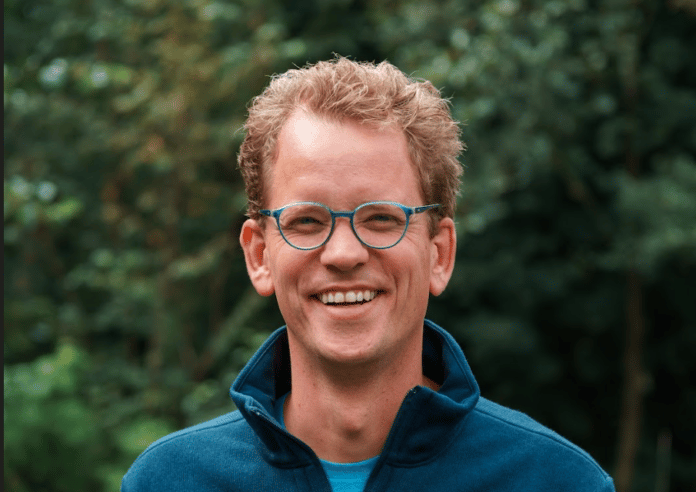Based between Delft and Zurich, Cradle has developed a design platform that harnesses the power of synthetic biology, capable of making environmentally friendly alternatives to 60% of everything humans consume. The biotech startup has just picked up over €5.5 million to exit stealth mode.
Just as the world’s population tops 8 billion and world leaders meet to discuss the strategies we need to take to ensure sustainable life on earth amidst an ever-concerning climate crisis, attention is turning to how we keep up with levels of human consumption.
From food and clothing to materials and medicines, we as humans consume a lot and we’re a pretty wasteful bunch. Producing these things we consume and dealing with the fallout of waste is having a hefty environmental impact and massive breakthroughs need to come through in order to protect our planet and create a more sustainable global society.
Biotech Cradle believes it might have a solution and it involves the use of AI and synthetic biology. The startup has just raised about €5.5 million to exist from stealth mode and generate impact.
The Details
- €5.5 million raised in seed funding
- The round was co-led by Index Ventures and Kindred Capital
- Leading angel investors also participated in the round including Feike Sijbesma, Honorary Chairman and former CEO of Royal DSM; and Emily Leproust, founder of Twist Bioscience.
Harnessing synthetic biology
Synthetic biology involves adapting the genes of microorganisms such as bacteria and fungi to create ‘cell factories’ that use programmable proteins to produce a wide variety of everyday products: from milk and meat, grown without farming animals, to plastics created without petrochemicals, materials for clothing or electronic components, or even personalized medicines.
Aside from creating products, it can also be used to break down and recycle waste materials, for instance by degrading waste plastics or removing pollutants from water.
Put simply, it’s a game changer.
The power of synthetic biology is now being realized and it’s a space that has reached a commercial and turning point. It’s believed that synthetic biology can be used to produce up to 60% of everything that humans consume. Further, in 2021, the synthetic biology market will be worth $1,157bn, with the cell factory market alone worth $40bn, and it’s only growing.
The challenge for biologists who are working on these products is that building these proteins is currently a costly and laborious iterative process based on trial and error. It often takes years to reach a viable solution and often more than 99% of protein designs tested in the laboratory fail to hit their design specifications.
Enter Cradle.
Founded in 2021, Cradle is aiming to make programming biology simple. Its machine learning platform helps scientists to design and program ‘cell factories’ faster and more successfully, speeding up the development of a more environmentally friendly method of producing almost anything.
Based in Delft and Zurich, the platform enables scientists to ‘reverse engineer’ proteins with the desired specific properties. Cradle’s self-teaching, self-improving generative machine learning models – which draw on recent advances in ‘natural language processing’ – can predict which parts of a protein’s genetic code a biologist will need to alter, significantly improving a scientist’s chances of getting the experimental results they want.
Stef van Grieken, Cradle’s CEO and co-founder: “You can think of cells like tiny factories, with proteins as the assembly lines and machines that allow them to make different end-products. With the right tweaks, we can make proteins that will make all manner of new products far more efficiently and with a much lower environmental impact. With current methods a biologist can spend years trying to find the right solution to any particular problem. By harnessing the power of machine learning, our platform can substantially speed up the design, build and scaling phases when bioengineering proteins, making it possible to create and scale synthetic biology projects much faster and more cost-effectively.
Our goal is to reduce the cost and time of getting a bio-based product to market by an order of magnitude so that anyone – even ‘two kids in their garage’ – can bring a bio-based product to market.”
Aiming to make as much impact as possible, the startup is also contributing to research in this emerging field. It improves the performance of these large models on specific tasks relevant to the context of biological research and makes them accessible to scientists without a machine learning background through an intuitive and collaborative online platform. Through this method, Cradle believes it can reduce the time and cost of getting a synthetic biology product to market by an order of magnitude.
With this new funding, the startup emerges from stealth mode and will accelerate product development. It’s certainly an exciting announcement for the future of humanity.
Sofia Dolfe, the partner who co-led the investment for Index Ventures: “It’s early days for synthetic biology, but it’s hugely significant for humanity and is going to grow exponentially. We believe this technology could transform how we produce almost everything; from food and medicine to the raw materials we use for a wide variety of consumer products. The Cradle team’s depth of expertise, degree of focus and speed of development sets them apart. They’re ideally placed to define a new category around programmable biology, creating the design tools that scientists are going to need to precision-engineer proteins.”




